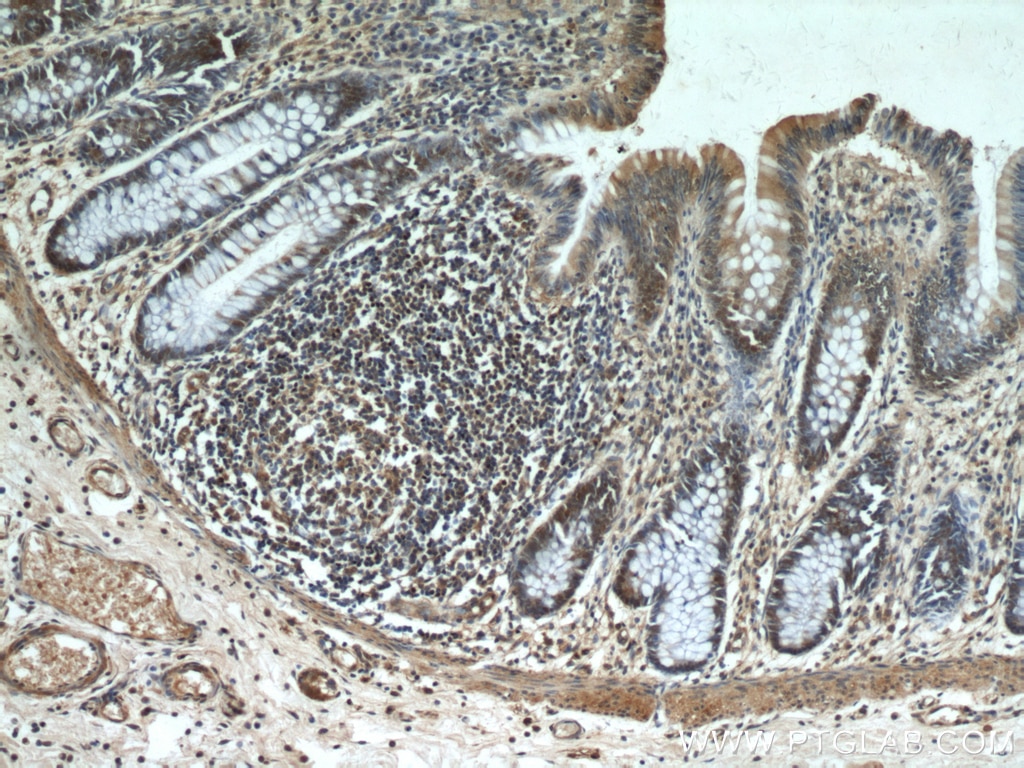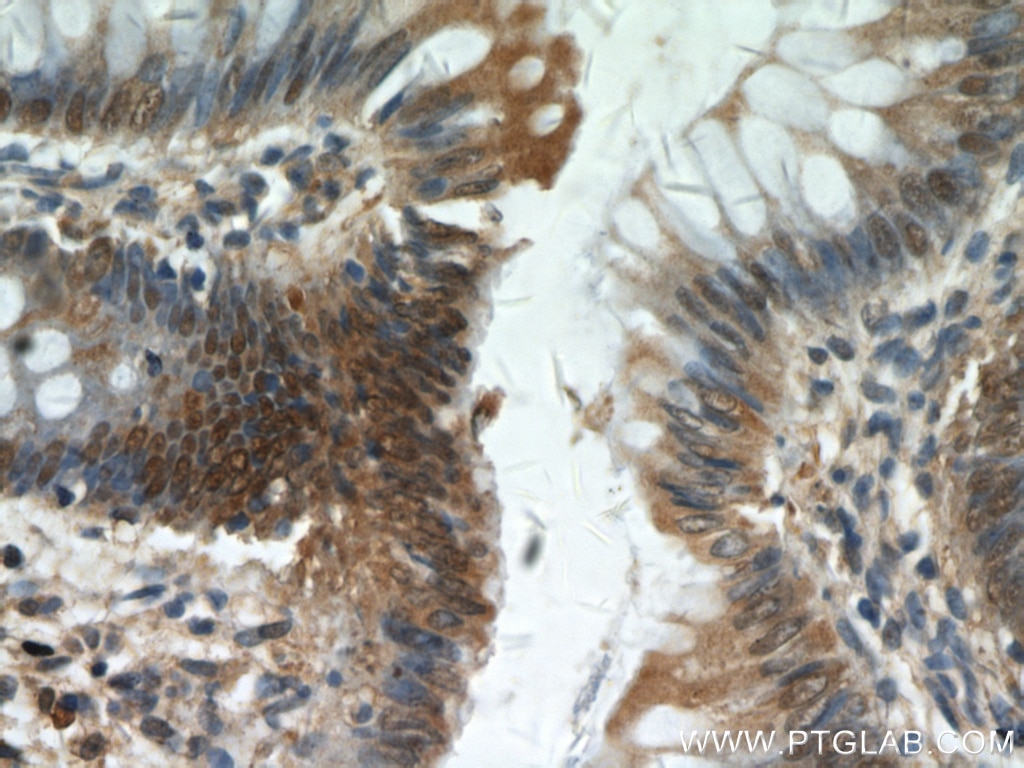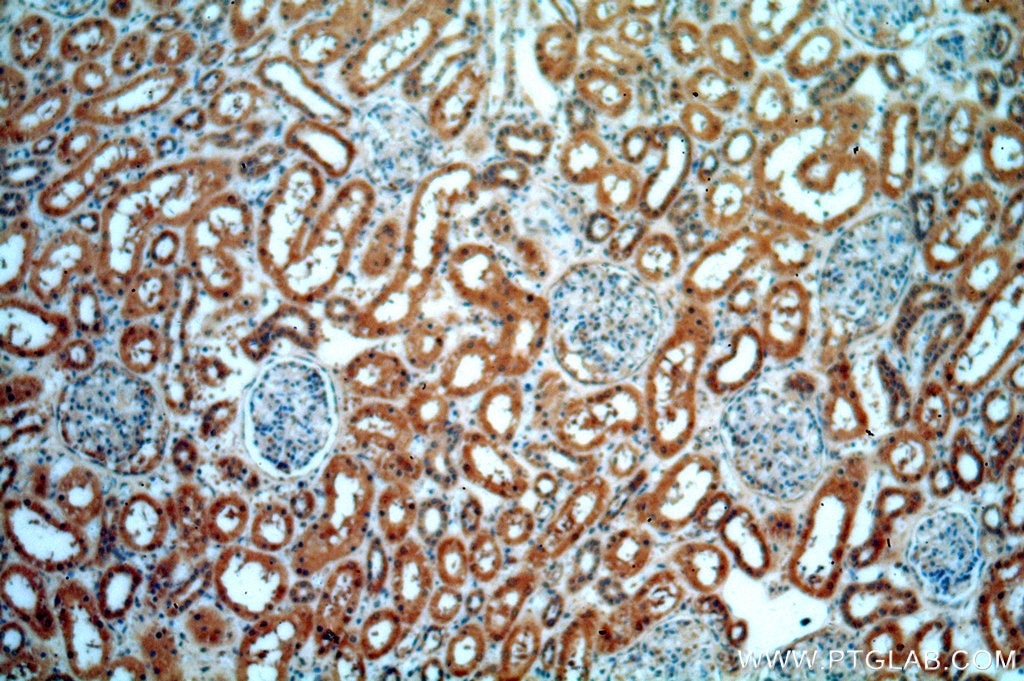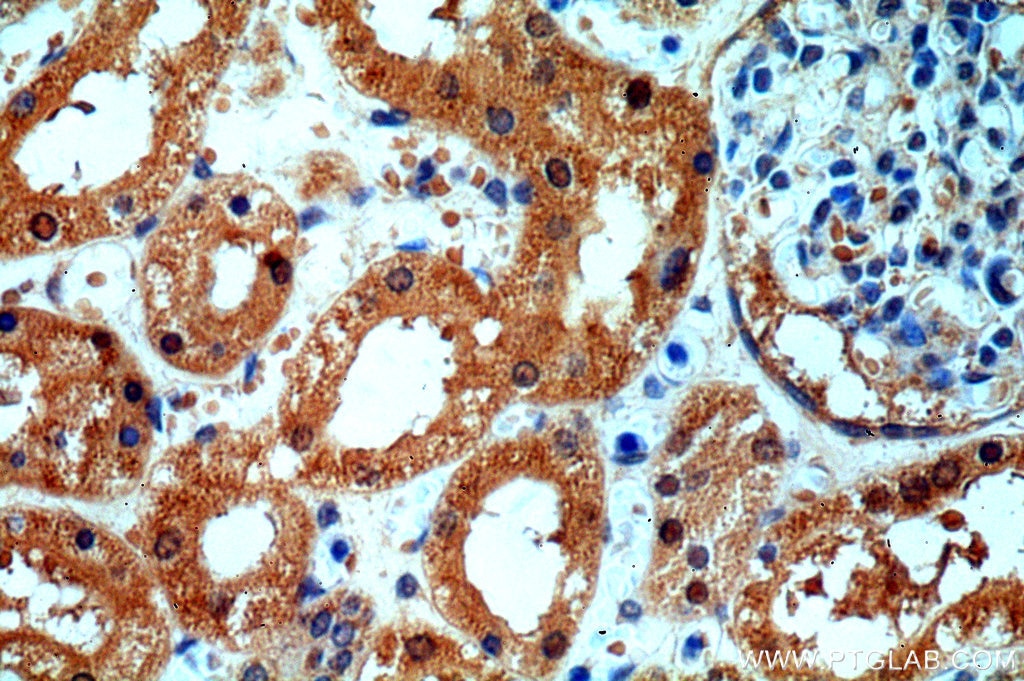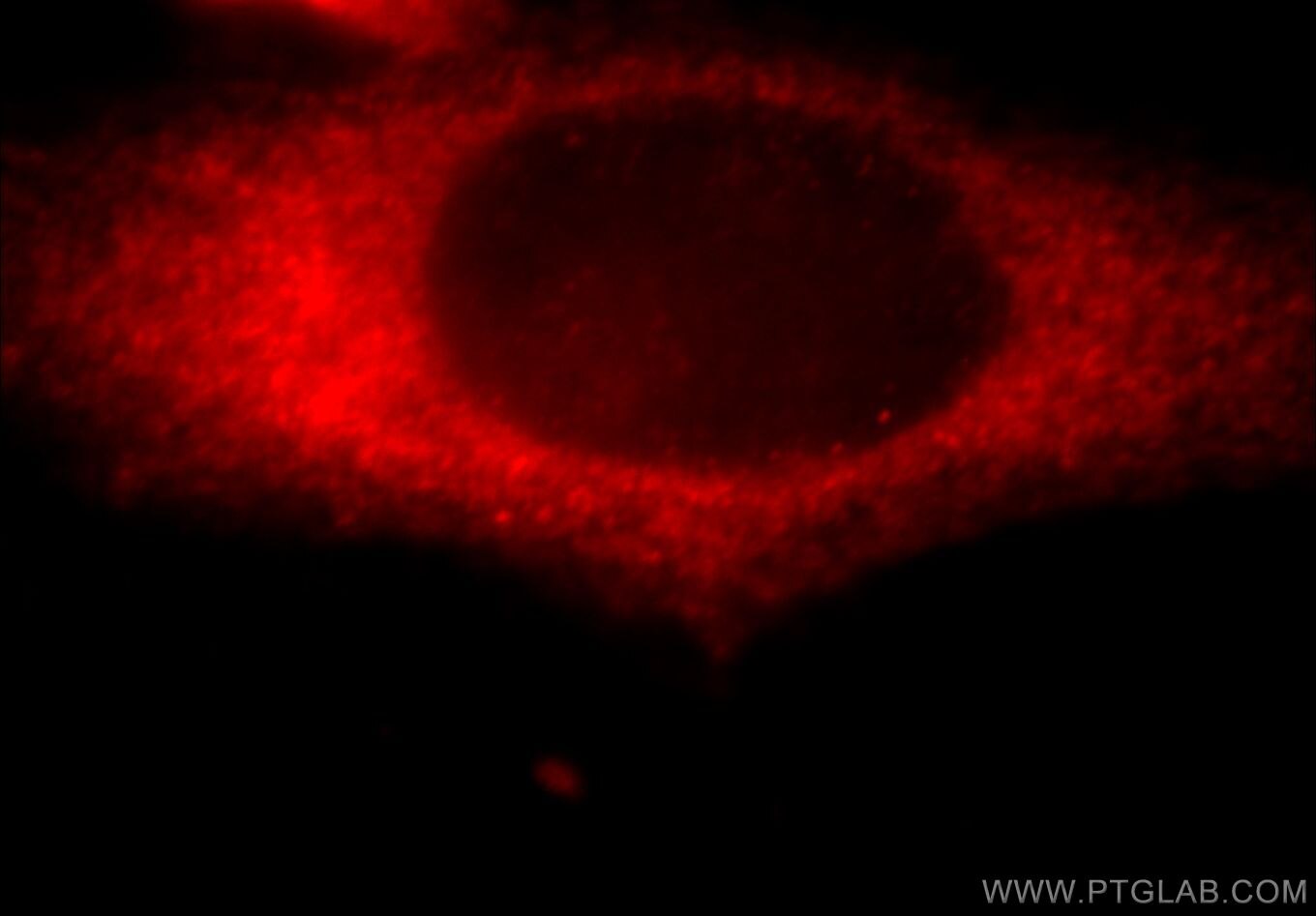KANK2 Polyclonal antibody
KANK2 Polyclonal Antibody for IF, IHC, ELISA
Host / Isotype
Rabbit / IgG
Reactivity
human, mouse, rat
Applications
IHC, IF, ELISA
Conjugate
Unconjugated
Cat no : 20546-1-AP
Synonyms
Validation Data Gallery
Tested Applications
| Positive IHC detected in | human colon tissue, human kidney tissue Note: suggested antigen retrieval with TE buffer pH 9.0; (*) Alternatively, antigen retrieval may be performed with citrate buffer pH 6.0 |
| Positive IF detected in | Hela cells |
Recommended dilution
| Application | Dilution |
|---|---|
| Immunohistochemistry (IHC) | IHC : 1:20-1:200 |
| Immunofluorescence (IF) | IF : 1:10-1:100 |
| It is recommended that this reagent should be titrated in each testing system to obtain optimal results. | |
| Sample-dependent, Check data in validation data gallery. | |
Product Information
20546-1-AP targets KANK2 in IHC, IF, ELISA applications and shows reactivity with human, mouse, rat samples.
| Tested Reactivity | human, mouse, rat |
| Host / Isotype | Rabbit / IgG |
| Class | Polyclonal |
| Type | Antibody |
| Immunogen | Peptide |
| Full Name | KN motif and ankyrin repeat domains 2 |
| Calculated Molecular Weight | 91 kDa |
| GenBank Accession Number | NM_001136191 |
| Gene Symbol | KANK2 |
| Gene ID (NCBI) | 25959 |
| RRID | AB_10694286 |
| Conjugate | Unconjugated |
| Form | Liquid |
| Purification Method | Antigen affinity purification |
| Storage Buffer | PBS with 0.02% sodium azide and 50% glycerol pH 7.3. |
| Storage Conditions | Store at -20°C. Stable for one year after shipment. Aliquoting is unnecessary for -20oC storage. 20ul sizes contain 0.1% BSA. |
Background Information
KANK2, also named as ANKRD25, KIAA1518, MXRA3 and SIP, is found as a candidate tumor suppressor for renal cell carcinoma. It is an ankyrin-repeat domain-containing protein. KANK2 has an identical role in the formation of actin stress fibers. The antibody is specific to KANK2.
Protocols
| Product Specific Protocols | |
|---|---|
| IHC protocol for KANK2 antibody 20546-1-AP | Download protocol |
| IF protocol for KANK2 antibody 20546-1-AP | Download protocol |
| Standard Protocols | |
|---|---|
| Click here to view our Standard Protocols |
